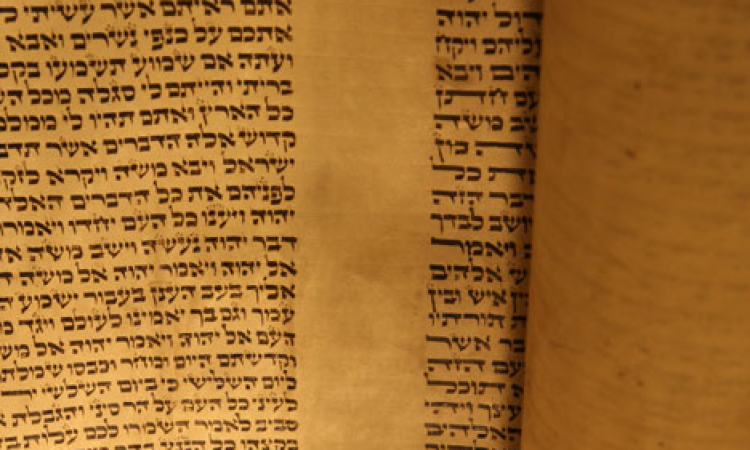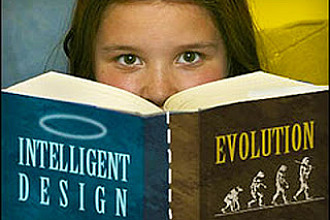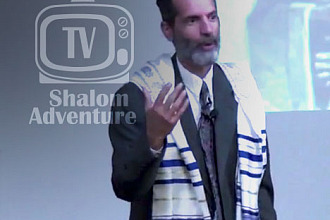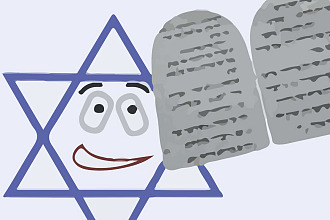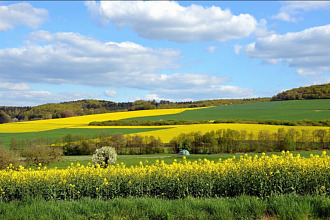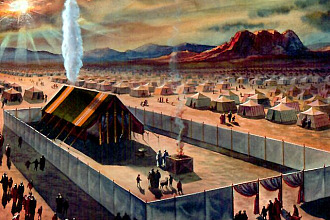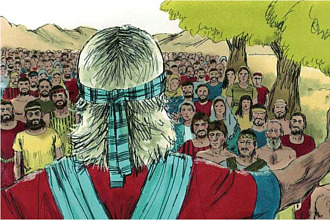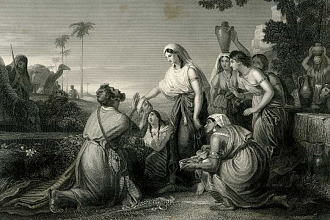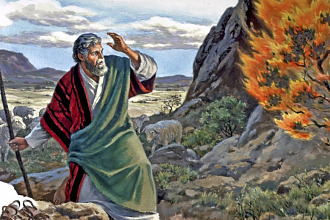Parasha for the Week: Vayelech: Deut:31:1 - 30
Haftarah for the Week: Isaiah 55:6 – 56:8
Apostolic Writings: 2Peter 3:1 - 13
Overview:
On this last days of his life, Moshe goes from tent to tent throughout the camp, bidding farewell to his beloved people, encouraging them to keep the faith.
Moshe tells them that whether he is among them or not, G-d is with them, and will vanquish their enemies.
Then he summons Yehoshua, and in front of all the people, exhorts him to be strong and courageous as the leader of the Jewish People. In this manner, he strengthens Yehoshua’s status as the new leader.
Moshe teaches them the mitzvah of Hakhel: That every seven years on the first day of the intermediate days of Sukkot, the entire nation, including small children, is to gather together at the Temple to hear the King read from the Book of Devarim. The sections that he reads deal with faithfulness to G-d, the covenant, and reward and punishment.
G-d tells Moshe that his end is near, and he should therefore summon Yehoshua to stand with him in the Mishkan, where G-d will teach Yehoshua. G-d then tells Moshe and Yehoshua that after entering the Land, the people will be unfaithful to Him, and begin to worship other G-ds. G-d will then completely hide his face, so that it will seem that the Jewish People are at the mercy of fate, and that they will be hunted by all.
G-d instructs Moshe and Yehoshua to write down a song — Ha’azinu — which will serve as a witness against the Jewish People when they sin. Moshe records the song in writing and teaches it to Bnei Yisrael.
Moshe completes his transcription of the Torah, and instructs the Levi’im to place it to the side of the Aron Hakodesh (Holy Ark), so that no one will ever write a new Torah scroll that is different from the original — for there will always be a reference copy.
"Circumcision of the Heart"
The promises of the L-rd are not only material or intellectual but also spiritual. “The L-rd your G-d will circumcise your hearts and the hearts of your descendants, so that you may love him with all your heart and with all your soul, and live. . . . You will again obey the L-rd and follow all his commands I am giving you today.” (Deuteronomy 30:6, 8). Even though this text belongs to parashat Netzavim, I wanted to underline some important points between the first and the second covenant. As we see in this text the “new” covenant is not the only covenant which has the circumcision of the heart as a sign. Many people tried to oppose the “ancient” covenant with Israel to the “new” covenant made with the Church. This opposition is artificial, because we see a clear continuation between the everlasting covenant made with Adam, Noah, Abraham and renewed by Moses and the covenant renewed by Yeshua. The circumcision of the heart is a requirement of both the Hebrew Scriptures (Tanakh) and of the Apostolic Writings (New Testament) as well.
However, what we learn from the Torah is that, if the circumcision of the flesh is done by a Mohel, no human being can make the circumcision of the heart, it is the work of G-d in our heart, it is written: “The L-rd your G-d will circumcise your hearts and the hearts of your descendants,” What a wonderful promise, the work of salvation, the work of sanctification, is not my work, it is the work of G-d in my heart, in fact, it is the work of the Ruakh Hakodesh. That is why when Jeremiah gave the promise of the New Covenant he said: “‘The time is coming,’ declares the L-rd, ‘when I will make a new covenant with the house of Israel and with the house of Judah. It will not be like the covenant I made with their forefathers when I took them by the hand to lead them out of Egypt, because they broke my covenant, though I was a husband to them,’ declares the L-rd. ‘This is the covenant I will make with the house of Israel after that time,’ declares the L-rd. ‘I will put my law in their minds and write it on their hearts. I will be their G-d, and they will be my people’.” (Jeremiah 31:31–33). In this text it is repeated twice that this new covenant will be made with the house of Israel, not with a strange people. And if this is not clear, the prophet Jeremiah continues saying: “Thus says the L-rd, who gives the sun for light by day and the fixed order of the moon and the stars for light by night, who stirs up the sea so that its waves roar— the L-rd of hosts is his name: ‘If this fixed order departs from before me,’ declares the L-rd, ‘then shall the offspring of Israel cease from being a nation before me forever’.” (Jeremiah 31:35–36). However, for some people that is not clear enough, then the L-rd adds: “Thus says the L-rd: ‘If the heavens above can be measured, and the foundations of the earth below can be explored, then I will cast off all the offspring of Israel for all that they have done,’ declares the L-rd.” (Jeremiah 31:37). It is good to remind these kind of statements from the L-rd as we end the reading of the Torah, and while the Jewish people is gathered in repentance between Rosh HaShanah and Yom Kippur asking G-d to forgive their sins.
"Repentance"
Just before dying Moses said to Israel: “For I know how rebellious and stubborn you are” (Deuteronomy 31:27), that is why Moses and all the prophets constantly called Israel to make Teshuvah (repentance). How to understand Teshuva: it could be understood as “to regret a bad act” or “to feel guilty about something wrong” and some other similar things. In Judaism and in the Bible it is recommended that a Teshuva should be by a verbal confession. Rabbi Zev Leff said that the Sefer Hachinuch offers two explanations of the benefit of verbal confession. First, verbalizing one’s repentance creates the feeling of conversing with a second party, which, in turn, sensitizes a person to the reality of G-d’s presence, G-d’s awareness of his every deed, and the need to render an account before G-d. The greater a person’s awareness that his sin was one in G-d’s presence, with his full knowledge, the greater his shame and regret. Secondly, verbal expression intensifies the process and leaves a more lasting effect. In addition to regret over the past, Teshuva also requires a commitment not to repeat the sin again. That commitment must be so decisive, resolute, and firm that G-d Himself can testify that at the moment of confession, the sinner does not contemplate ever committing that sin again.
Rabbi Leff adds, the Sefer Yerey’im specifies another dimension to verbal confession—supplication for atonement. There must be a clear recognition of the seriousness of the damage caused by the sin, both in terms of the damage to one’s soul and one’s relationship to G-d, and in terms of the effect on the world by closing the conduits of blessing. For this, one must entreat G-d to forgive, heal and repair the damage.
HAFTARAH: Isaiah 55:6 – 56:8
This Shabbat is the last Shabbat before Yom Kippur. That’s why the Haftara is oriented towards repentance and a call to change our ways. It is the purpose of the 10 days between Rosh Hashanah and Yom Kippur.
The text starts with a call to repentance. “Seek the L-rd while he may be found, call upon him while he is near” (Is. 55:6). Before Yom Kippur the people of G-d are invited to come back to him, to give up their old ways. The prophet affirms that the thoughts of G-d are very far away from human thoughts. “For my thoughts are not your thoughts, nor are your ways my ways, says the L-rd. For as the heavens are higher than the earth, so are my ways higher than your ways and my thoughts than your thoughts” (Is. 55:8-9).
Worshiping G-d in our assembly can make a great difference in our lives because attending a religious service let’s us hear G-d’s Word. Isaiah states under inspiration that the Word of G-d cannot return to G-d without having its effect on our heart. “So shall my word be that goes out from my mouth; it shall not return to me empty, but it shall accomplish that which I purpose, and succeed in the thing for which I sent it...” (Is. 55:11). The consequences of this action of G-d’s word are joy, peace and happiness. “For you shall go out in joy, and be led back in peace; the mountains and the hills before you shall burst into song, and all the trees of the field shall clap their hands” (Is. 55:12). Experiencing forgiveness, G-d’s people are happy and ready to share G-d’s love with the nations through songs.
The L-rd is waiting for his people to do what is right. “Thus says the L-rd: Maintain justice, and do what is right” (Is. 56:1). And what is just and right? To keep and observe Shabbat: “Who keeps the sabbath, not profaning it, and refrains from doing any evil” Is. 56:2). Even the foreigners and the excluded are welcome in the midst of G-d’s people. “To the eunuchs who keep my sabbaths, who choose the things that please me and hold fast my covenant, I will give, in my house and within my walls, a monument and a name better than sons and daughters; I will give them an everlasting name that shall not be cut off” (Is. 56:4-5). Keeping the Shabbat is one of the best ways to demonstrate our love to G-d who prepared an everlasting name, which will never be deleted
APOSTOLIC WRITINGS: 2 Peter 3:1 - 13
The Torah presents the covenant as a covenant in which each member of G-d’s people, Jew and non-Jew, has to enter and the same thoughts are in the Apostolic Writings. Yeshua renewed the covenant with Israel and his disciples. He asks us today to accept this covenant as individual, as a family and as a people, a family. The experience of our fathers are interesting and important because they are an example for us, but it will never replace our personal experience with Yeshua. It is crucial that each individual present himself before God as Moses repeated it many times in the Torah.
We are living in a special time, known by Jews and Christians as the time of the revelation of the Messiah, this time is called in the Bible: “The last days,” “The time of the end,” this time was described by one of the disciple of Yeshua, Shim’on called also Peter, in his second letter he said: “This is now the second letter that I am writing to you, beloved. In both of them I am stirring up your sincere mind by way of reminder, that you should remember the predictions of the holy prophets and the commandment of the L-rd and Savior through your apostles” (2 Peter 3:1–2). However, Shim’on has received a clear vision of the world’s situation at the end of time. There will be much less people believing in G-d than before. Very few would accept the divine revelation about the second coming of Yeshua: “knowing this first of all, that scoffers will come in the last days with scoffing, following their own sinful desires. They will say, ‘Where is the promise of his coming? For ever since the fathers fell asleep, all things are continuing as they were from the beginning of creation’.” (2 Peter 3:3–4). It is interesting to notice that Shim’on is speaking about “Christians,” people who have already heard about “his coming,” and even though they believed at one time, now they are rejecting what they heard from their fathers. What is their arguments? “For ever since the fathers fell asleep, all things are continuing as they were from the beginning of creation.” And Shim’on continues: “they deliberately overlook this fact, that the heavens existed long ago, and the earth was formed out of water and through water by the word of G-d, and that by means of these the world that then existed was deluged with water and perished. But by the same word the heavens and earth that now exist are stored up for fire, being kept until the day of judgment and destruction of the ungodly.” (2 Peter 3:5-7). What causes these doubts about the “end” and the “Second Coming” in the heart of the scoffers? Doubts about the creation. When we don’t believe in the creation, we don’t believe anymore in the “end,” we don’t need a “second coming” of Yeshua, and we don’t need any new Eden or “new earth” and “new heavens” (Isaiah 66:22).
Let’s remember that according to the Bible, G-d is not in the same dimension of time as human beings: “with the Lord one day is as a thousand years, and a thousand years as one day” (2 Peter 3:8). That is why, at each generation we must take the advice to be prepared for the “Second Coming” very seriously in order to be found among the remnants. This preparation has and will always includes a repentance or Teshuva: “The L-rd is not slow to fulfill his promise as some count slowness, but is patient toward you, not wishing that any should perish, but that all should reach repentance” (2 Peter 3:9). Please listen carefully to what he said: “the L-rd is not slow to fulfill his promise” to come. According to the Jewish tradition we entered the Messianic era two thousand years ago, and even though it was the time of the first apparition of the Messiah as the “Son of Joseph,” and he promised that he would come back as the “Son of David” to establish his kingdom forever, but two thousand years have already past and he is still not here, that is why some could be discouraged.
Can we discover why he did not come yet? Shim’on explains that his delay is a proof of his love for us. He is “patient” toward us, He loves us so much that he knows that if He would come back today many of us would be lost. Loving us He is patient waiting for us to repent, to come back to G-d, to make Teshuva. Then, He will be happy to come back because He knows that He will welcome each one of us to the kingdom of his father and will introduce us to eternity. Therefore, let us not wait to answer to this great love and to come back to him, today, before it is too late. Let’s follow the example of the Jewish people, who are meeting, every beginning of the year, for 10 days praying, repenting, asking forgiveness. we should too make all our effort to be ready for his soon coming: “Since all these things are thus to be dissolved, what sort of people ought you to be in lives of holiness and godliness, waiting for and hastening the coming of the day of God, because of which the heavens will be set on fire and dissolved, and the heavenly bodies will melt as they burn! But according to his promise we are waiting for new heavens and a new earth in which righteousness dwells.” (2 Peter 3:11–13).

